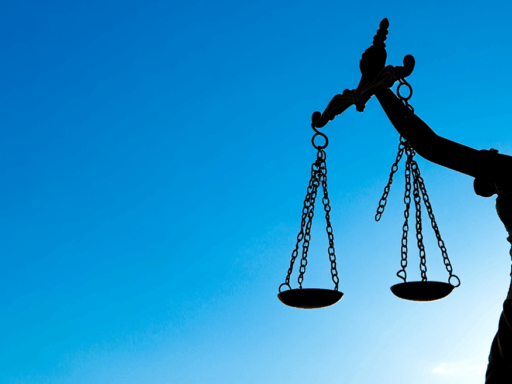Meeting a deposition situation may sometimes be intimidating, particularly if you are not clear about your rights. One of the most common questions that many individuals have is whether they have the right to refuse to answer a few of the questions in a deposition.
Ascertaining your legal position during a deposition is of great importance if you want to stay safe and make sure that the process carried out is fair.
Legal procedures are complex and require you to be very clear with your information and have confidence. This paper will cover the events where you are legally allowed to make a non-response during a deposition and hence provide you insights on what to do so that you become more prepared and educated.
Definition of a Deposition
A deposition is a pre-trial formal procedure where a witness is commissioned under oath by the lawyers at a court and gives his/her account of the incident. This procedure comes under the discovery phase of a civil litigation. The one who is deposed or the testimony he gives in a deposition can be the proof in court later on.
Lawyers on both sides go to the deposition to collect the essential information, which can be utilized for their respective cases. In the course of their questioning, they look to get at the truth, clarify the details, and witness the testimoVideo recordings are one of the methods used to obtain proof of testimony in a deposition. The way this is done is through the use of video recordings where the deponent testifies under oath in the presence of a court reporter while his/her lawyer, the opposing lawyer, and the judge watch and listen to the proceeding through the use of a screen. This method enables all parties, including the witness, to prepare adequately for the trial.
Common Deposition Objections
Deposition rules stipulate that a person has the right to refuse to answer questions in a deposition. Such rules serve as a form of protection of individual rights and to ensure the smooth administration of legal proceedings.
Privilege Against Self-Incrimination
The Fifth Amendment not only provides a person with the privilege against self-incrimination but also allows them to use it. By invoking their Fifth Amendment right, people who are at risk of criminal charges can refrain from being a witness and thus, can avoid questions. The judiciary is very concerned about the privacy of an individual who is now in a remote area or at detention during his/her examination.
Attorney-Client Privilege
Attorney-client privilege refers to the immunity of the law to the information belonging to the clients. Normally, if these issues were to be made public, the client can in normal circumstances tell his or her lawyer about it, and this information cannot be divulged. The privilege is instrumental in fostering the attorney-client relationship and thus, effectively ensuring legal rights representation through frank and open conversations.
Irrelevant Questions
Lawyers should only ask questions that are related to
Harassment or question abuse during a deposition is not allowed. People have the right to refuse to answer questions that are meant to annoy, offend, or oppress them. If necessary, the courts can step in to stop such behavior and defend the deposition process.
Consequences Of Refusing To Answer
When a person refuses to answer questions in the course of a deposition, he/she may have to deal with far-reaching consequences. The right information about the consequences of one’s refusal is useful for people going through the legal procedures.
Being Held In Contempt
There are situations in which the courts can declare you in contempt if you refuse to answer by questioning. Contempt charges are filed in cases where the prevention of the legal process happens or the court directive is disobeyed. The consequences of contempt charges include fines, imprisonment, or both. For example, one could be fined up to $1,000 for every day of non-cooperation.
Court Sanctions
Disobedience of the law may result in a person being sanctioned by the courts after they have refused to answer deposition questions. These sanctions can take various forms but usually come as fines, attorney’s fee payments, or other legal penalties. The court can also order the plaintiff or the defendant’s claim to be dismissed for not cooperating. In one particular case, the whole of a plaintiff’s lawsuit was thrown out after frequent deposition denials.
How To Respond Appropriately
Talking properly in a deposition can safeguard your rights and the spoken words are still intelligible. The techniques that are considered to be the most valuable in this situation will be the following: requesting clarifications, objecting on the record, and seeking protective orders.
Asking For Clarification
Since sometimes the question may be misunderstood, do ask for a better clarification. Tell the examining lawyer to reword or elaborate the question. The main idea here is to be relaxed with the question and answer it using your words to avoid giving incorrect information due to non-understanding or not getting all the right details through poor communication.
Objecting On The Record
Answer “objection” when the question is illegal or does not relate to the case and fill in the blank with your reason. The attorney can let you know who is responsible for such objections. The objections will be made in the record so that the right is left to argue the admissibility of specific questions or answers in the court afterwards.
Applying for a Protection Order
In certain instances, a shield against direct questions is indispensable. Ask for protection through the court to stop or prevent certain concerns. This method is absolutely necessary if the questions are embarrassing, abusive, or not to the point. Legal representatives should be a part of the procedure of a protective order to make it sure that the application is presented in a proper and well-founded way and they should also be present during the court proceedings.
Guarantee Notarization with BlueNotary’s Professional Services
Knowing your rights and all the common deposition objections will help to make the process of the deposition smoother. In addition to the legal aspects, get your documents notarized through the renowned BlueNotary’s fast, easy, and secure online notarization service. We ensure the legal and binding status of your documents.
Keep your personal rights safe and manage your deposition smoothly. Do not hesitate to register for free now to facilitate your notarization requirements and gain extra support in your legal journey with BlueNotary: The one you can lean on for a hassle-free and sure deposition process!
Frequently Asked Questions About Deposition Objections
Q1. What are common deposition objections? Common deposition objections include objections to relevance, privilege, form of the question, and compound questions. These objections help protect the deponent’s rights and ensure the integrity of the deposition process.
Q2. Can I refuse to answer a question during a deposition? Yes, you can refuse to answer a question during a deposition if it is protected by privilege (attorney-client privilege) or if it is irrelevant, harassing, or abusive. Your attorney would be the best person to help you in deciding whether to deny the question or not.
Q3. What should I do if I don’t understand a question during a deposition? If you don’t understand a question, start by asking for clarification. It’s necessary first to have a clear understanding of the question before you can give a satisfactory and relevant answer.
Q4. What are the consequences of refusing to answer a question during a deposition? Refusing to answer a question can result in legal consequences, such as a motion to compel or sanctions, if the refusal is not justified. It’s essential to consult with your attorney for guidance on how to handle these situations.








